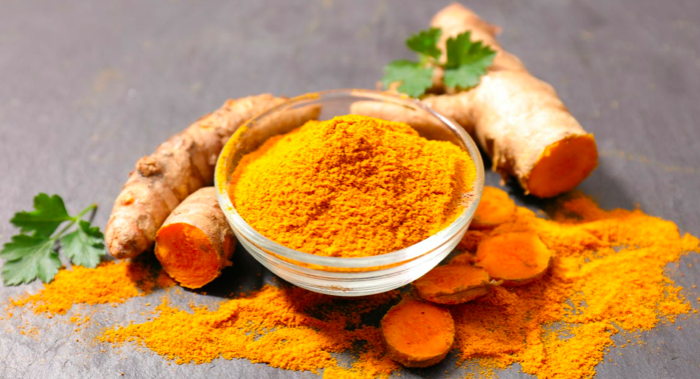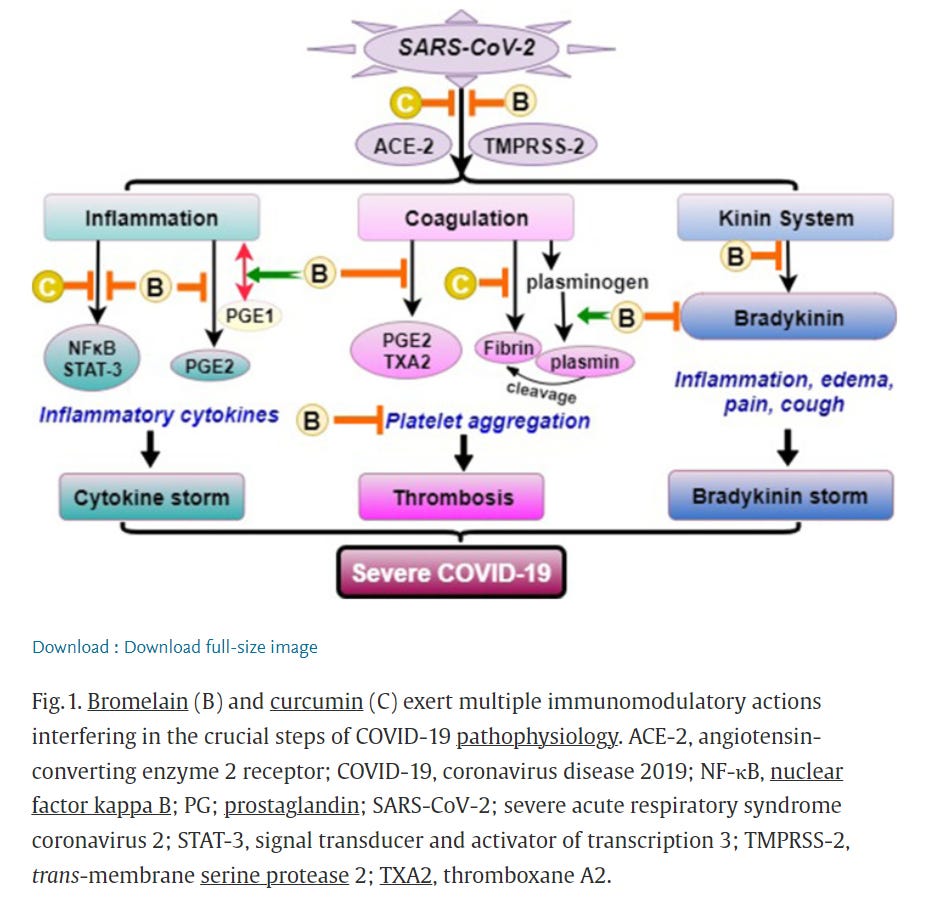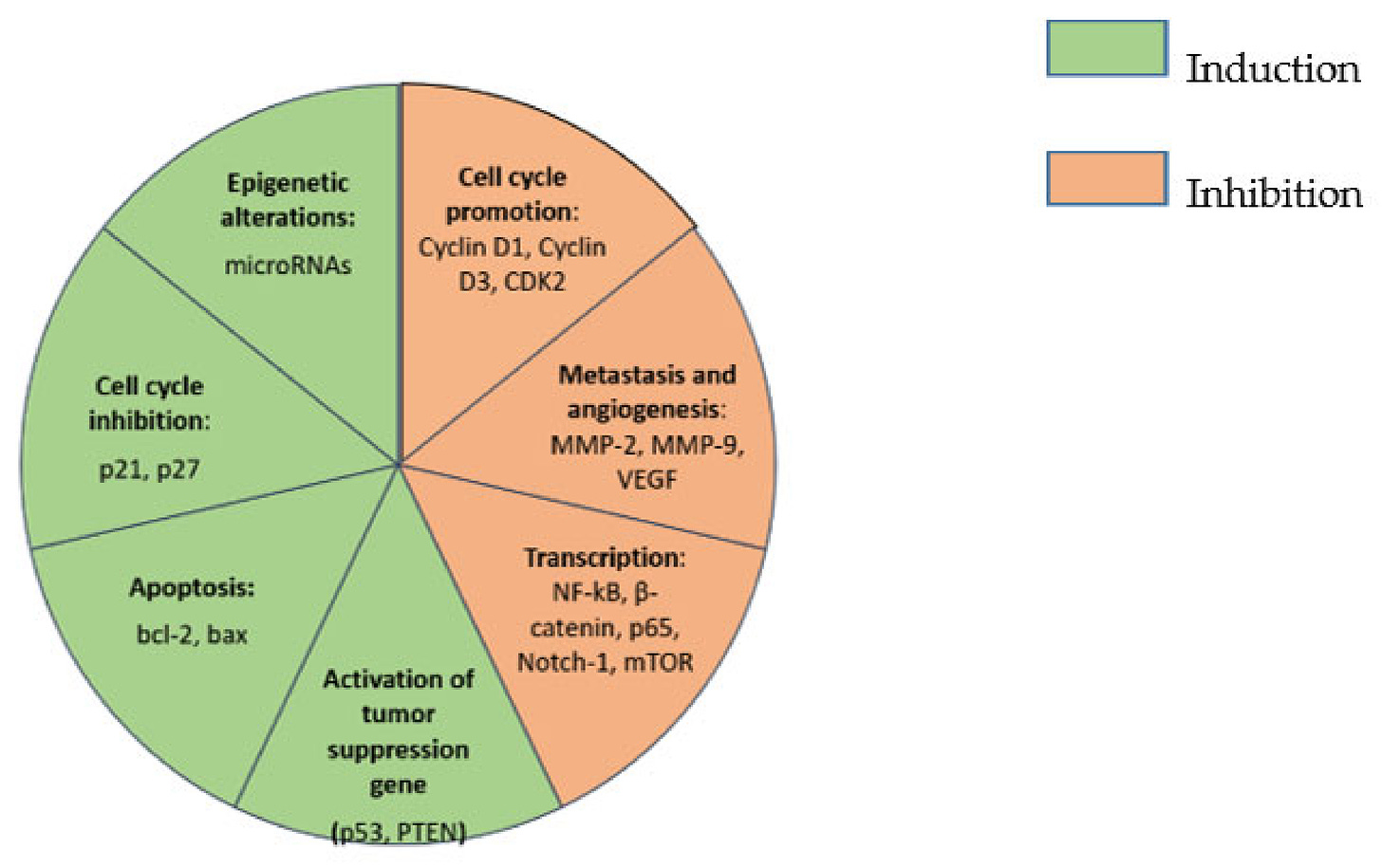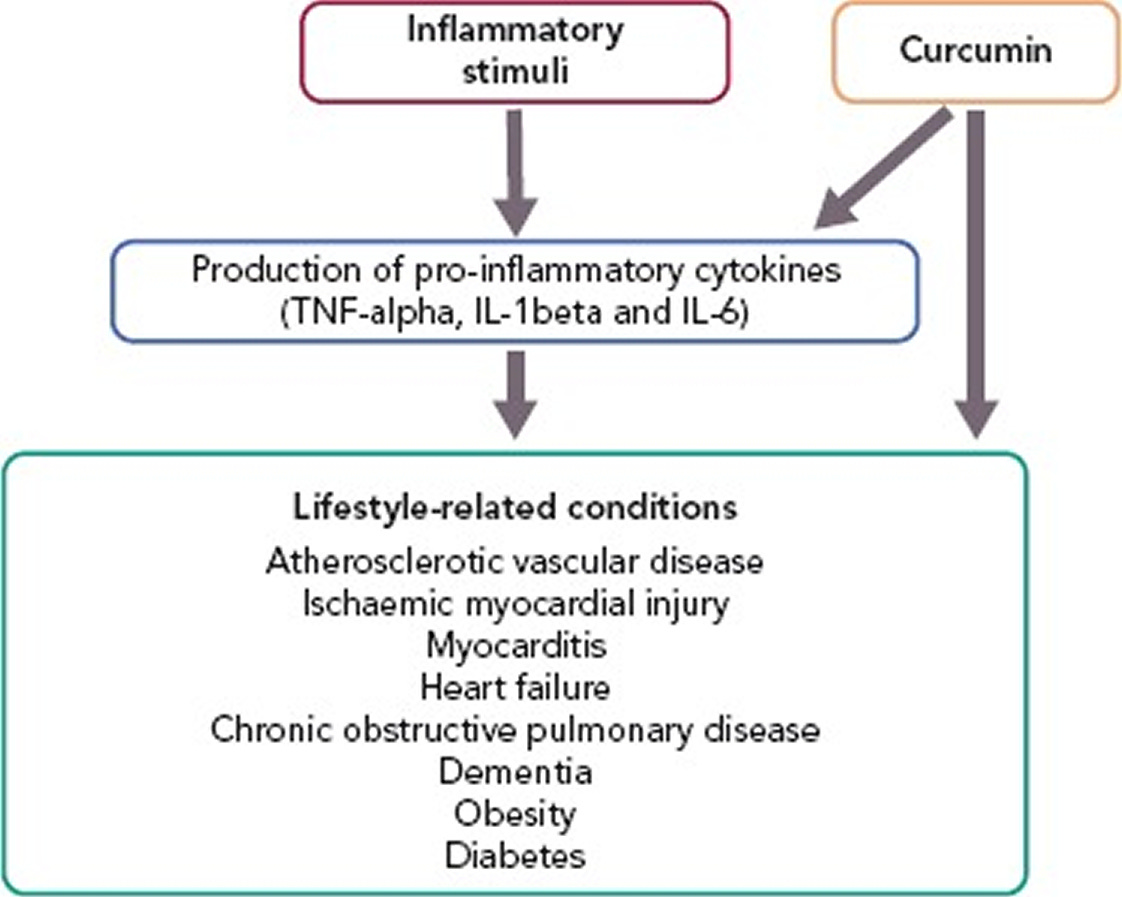by Dr. William Makis, Global Research:

Curcumin (Turmeric)
Curcumin (diferuloylmethane), is a main bioactive polyphenolic compound that is extracted from the Curcuma longa (Tumeric) rhizomes, which belongs to Ginger family and is broadly cultivated in Southeast Asia and India.
TRUTH LIVES on at https://sgtreport.tv/
Curcumin is a yellowish compound, which has been used as a food additive, dietary spice, and herbal remedy.
Several investigations have revealed that curcumin possesses potent biochemical and biological activities, including anti-inflammatory, anti-viral, anti-bacterial antioxidant, and anti-cancer activities.
In traditional herbal medicine, curcumin is used to improve the immune system and as a treatment for various respiratory disorders like allergy and asthma.
Curcumin has also been traditionally used for the treatment of numerous diseases including ulcers, dysentery, jaundice, upset stomach, arthritis, acne, wounds, and eye and skin infections.
Curcumin and COVID-19 Infection and spike protein
May 2020 – Zahediour et al reviewed curcumin in COVID-19 infection:
- curcumin has antiviral properties against other viruses like RSV, Herpes
- curcumin altered surface protein structure of viruses to block their entry into cells
- curcumin binds spike protein (!)
- curcumin inhibits viral replication inside infected cells
- curcumin inhibits inflammatory cytokines in COVID infection and decreases cytokine storm
- curcumin inhibits oxidative stress that causes severe lung injuries
- curcumin inhibits fibrotic response in COVID-19 infection, reduces lung fibrosis, reduces cardiac damage and fibrosis, reduces kidney fibrosis
July 2022 – Nag et al. found that curcumin had strong, stable binding with Omicron spike protein, that was superior to hydroxychloroquine. It could also disrupt a spike protein already bound to ACE-2.
Sep.2022 – Zipin et al found that curcumin can disrupt Omicron viral particles but their curcumin formulation which had poor bioavailability, was unable to disrupt Omicron virus in infected cells – authors suggest using nanocurcumin to improve bioavailability
Oct.2022 – Venugopa et al. found that in addition to curcumin binding spike protein, curcumin could also interfere with COVID-19 viral replication, and was an immunomodulator that could prevent cytokine storm.
April 2023 – Wei Wu et al. found that curcumin could ameliorate spike protein mediated oxidative stress through scavenging ROS (reactive oxygen species) and enhancing function of the antioxidation system. This is enhanced further when taken in combination with resveratrol.
CURCUMIN + BROMELAIN
Greek researchers Kritis et al showed in Dec.2020 that Bromelain combined with Curcumin has a major impact on stopping severe COVID-19!
- Severe COVID-19 involves 3 pathways: inflammatory (cytokine storm), coagulation (thrombosis) and bradykinin cascades
- Both Bromelain and Curcumin inhibit two of these (inflammation and coagulation) and Bromelain inhibits bradykinin as well.
- Both Bromelain and Curcumin block binding of spike protein to ACE-2 and TMPRSS-2
- Bromelain also increases absorption of curcumin after oral intake which is very important because curcumin on its own has very poor bioavailability
- Conclusion: “Bromelain is absorbed directly when administered orally, while it substantially promotes the absorption of curcumin enhancing its bioavailability,and making this a perfect combination of immune-boosting nutraceuticals with synergistic anti-inflammatory and anticoagulant actions”

CURCUMIN and Anti-Aging
Aging is one of the most complex and intricate phenomenon in the biological context. Aging is described as a physiological decrease of several biological activities in the organ with a gradual reduction of cellular adjustment to external and internal injuries.
The senescence that is known also as cellular aging is the hallmark of aging, and includes the reduction of the regenerative capacity of cells. In this regard, cellular senescence seems to be harmful because it consists of a defect of tissue renewal and functionality. Cellular senescence is an irreversible growth arrest by which cells cease to replicate; it occurs in somatic cells and limits their proliferative life span.
Anti-aging benefits of Curcumin:
- 10 times higher anti-oxidant activity compared to Vitamin E
- Stimulates production of anti-oxidative enzymes (like superoxide dismutase) that decrease oxidative stress and increase life span
- Inhibits lipid peroxidation
- free radical scavenging activities slow telomere shortening
- activates various cell signaling pathways that increase lifespan
- decreases inflammation in neural cells, decreases neurodegenerative processes
- decreases skin aging, promotes wound healing
- inhibits aging processes in skeletal muscle, improves muscle mass and function
- powerful anti-cancer effects by inducing apoptosis of cancer cells
CURCUMIN and Anti-Cancer
- Aug. 2021 – Zoi et al – summarized curcumin’s effects on cancer

- Lung cancer: curcumin suppressed invasion and metastatic potential of lung cancer cells. Also activates key tumor suppressor genes in smoking induced lung cancer
- breast cancer: curcumin stopped the growth of breast cancer cells, also suppressed invasion and metastasis of breast cancer cells
- prostate cancer: curcumin induced apoptosis and autophagy of cancer cells and is effective in castration-resistant prostate cancer as well
- brain cancer: nanocurcumin can get past BBB into brain and can decrease proliferation of glioblastoma (GBM) cells, also suppresses formation of GBM stem cells which are responsible for tumor progression, recurrence and resistance to chemo – curcumin also decreases malignant characteristics of GBM stem cells to prevent GBM cancer recurrence.
- pancreatic cancer: curcumin suppresses formation of cancer stem cells which are responsible for high proliferation rate and rapid tumor growth of pancreatic cancer – suppresses tumor growth.
- leukemia – curcumin affects numerous anti-cancer pathways, also enhances the effectiveness of chemo in treatment of leukemias.
- Feb.2021 – Zia et al – most cancers have a non-functional or mutated p53 tumor suppressor gene
- curcumin activates p53 pathway that induces senescence in cancerous cells and also induces death of cancer cells via apoptosis
- Aug.2020 – Mansouri et al reviews use of curcumin in cancer patients:
- curcumin increases effectiveness of chemo and radiation therapy
- curcumin improves patient survival and increases expression of anti-metastatic proteins
- curcumin reduces side effects of chemotherapy and radiotherapy
CURCUMIN and Lifestyle-related conditions

- curcumin reduces myocardial infarct size
- curcumin treats myocarditis(!) reduces inflammation and progression
- curcumin inhibits development of left ventricular systolic dysfunction and heart failure
- curcumin reduces lung inflammation in COPD
- obesity – curcumin reduces inflammation due to obesity, also improves serum lipid profile and lipid metabolism.
- dementia – nanocurcumin reduced amyloid and tau accumulation in the brain





